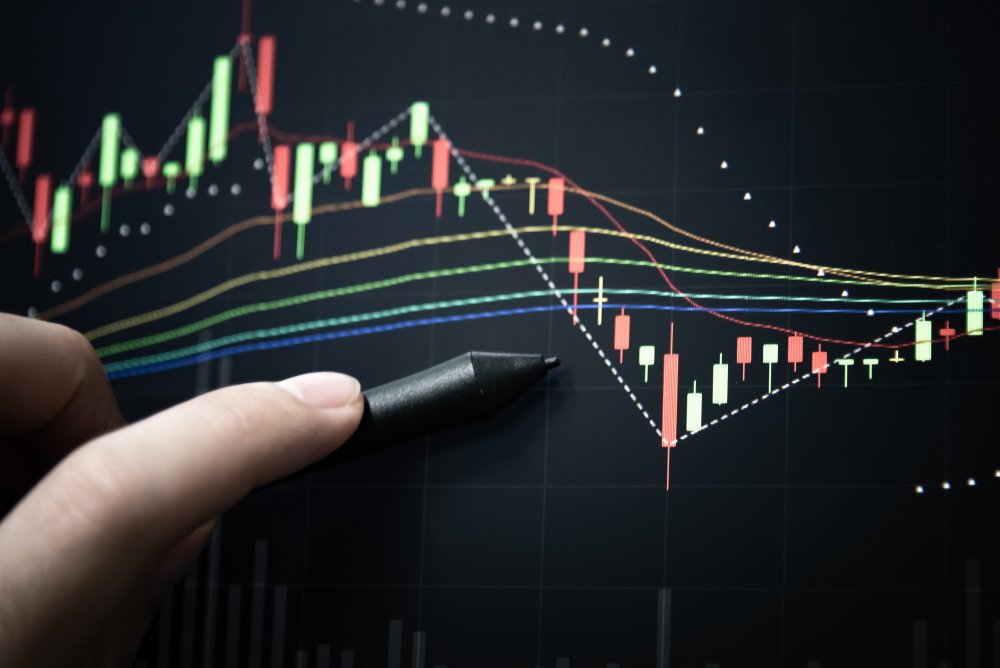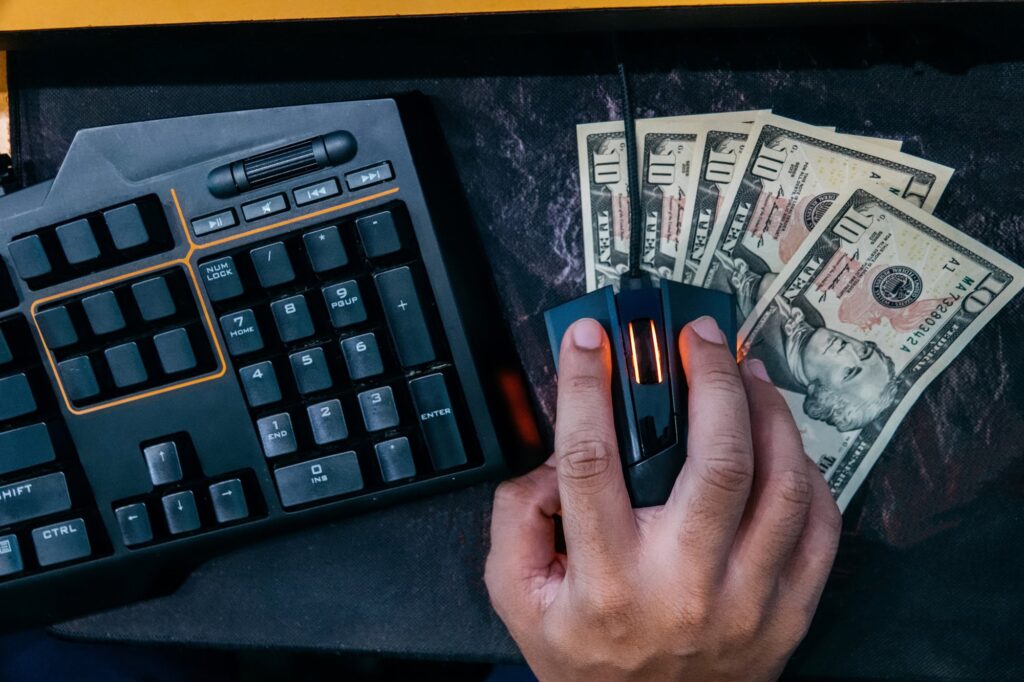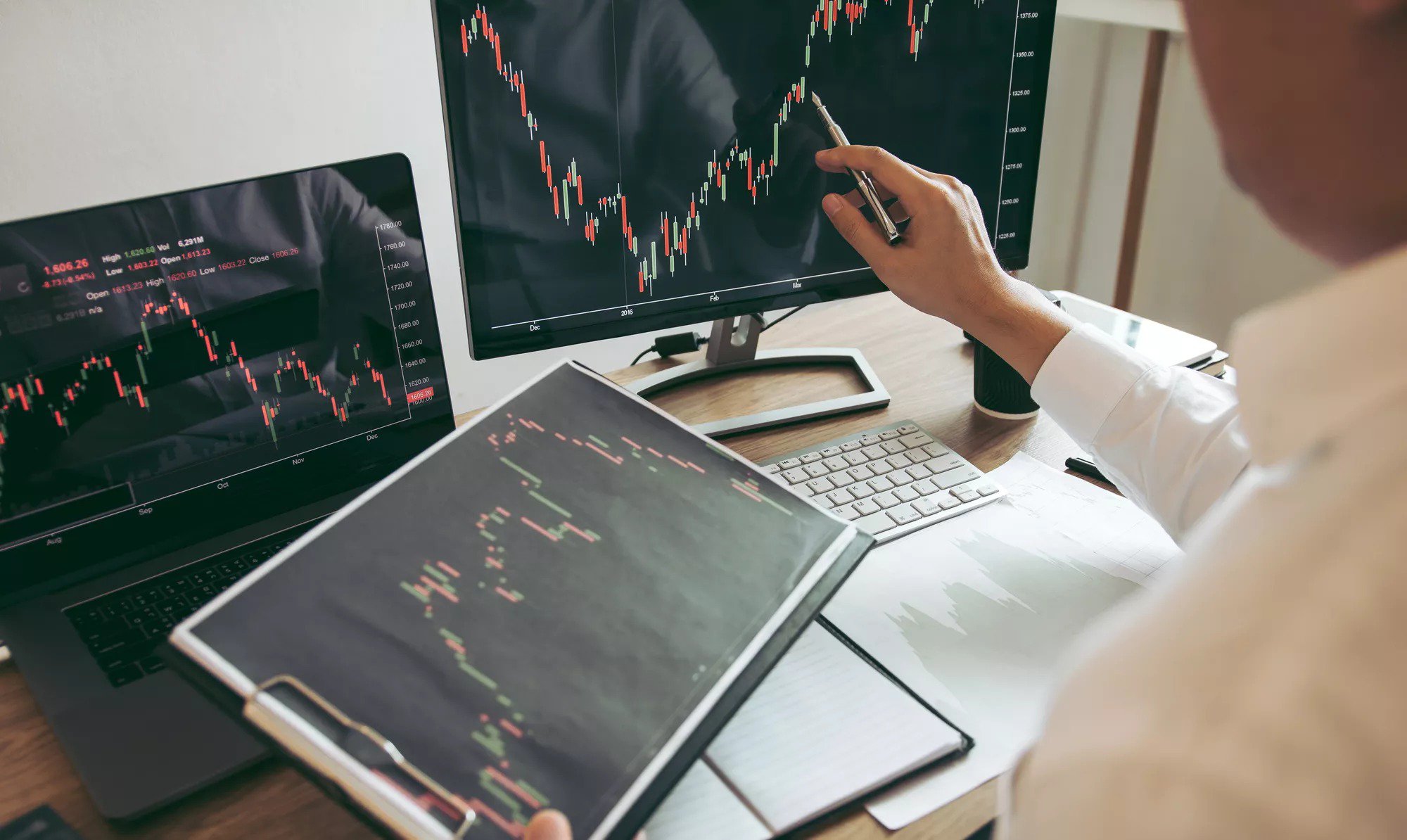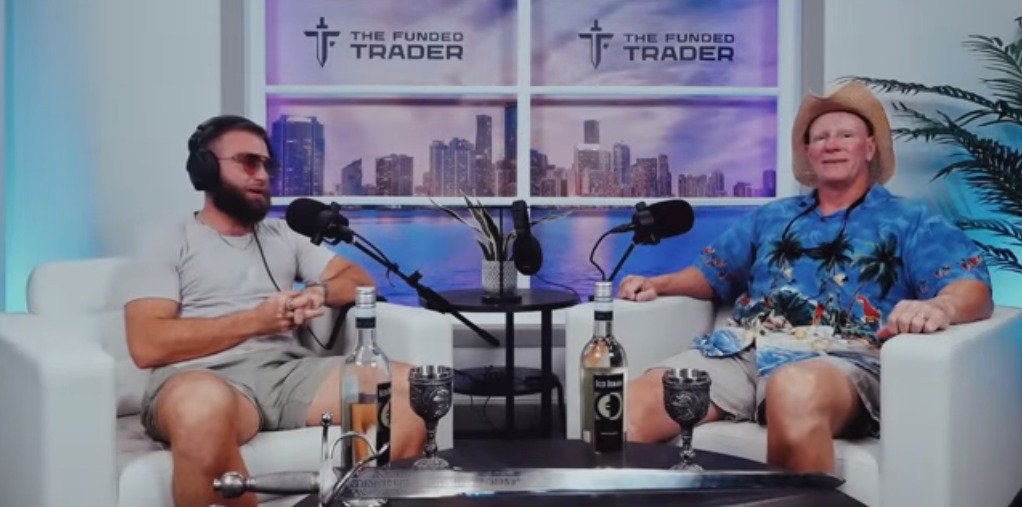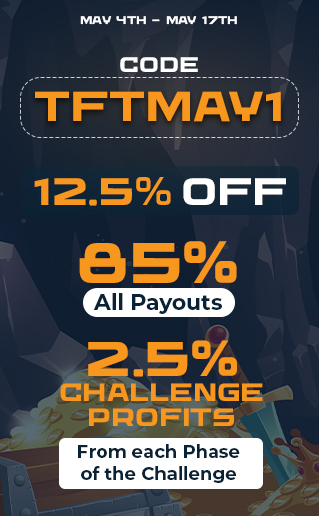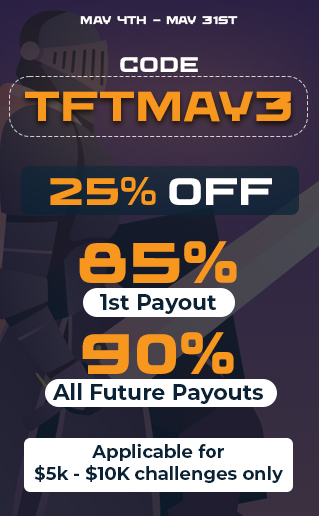Ever wondered how people like George Soros became mega-successful traders? They didn’t crack an imaginary code that now lets them print money. So, what separates these super performers from everyone else? It’s their way of thinking. The difference between winning and losing traders isn’t just the strategy they use; they’ve developed the psychology of a trader.
Successful traders know their behavior and mindset can impact the trade. Simply put, your experience and simulated trading skills are of no use if you let emotions cloud your decision-making. If greed, panic, or even euphoria get in your way, you’ll face more losses than wins.
So, how do you cultivate winning habits and the right mindset? This comprehensive guide will help you develop the right simulated trading psychology. We’ll also look at habits of successful forex traders that you can master to help you win more.

The Importance of the Right Trader’s Mindset
A forex trader has to absorb multiple types of information to succeed. Analyzing charts and trends is only part of the job. What’s even more crucial is having the discipline and the psychology of a trader to stay on the right course and manage risks.
Windfall gains are possible in forex trading, but these gains don’t come on the first day. Those who enter this field to get instant returns often find themselves at a loss. The long game is what matters.
Build a winning mindset with these three tips:
1. Set Realistic Expectations
No revenue stream can provide overnight returns. To gain these returns, you must first build an investment culture and work on it gradually. Set real expectations—this includes acknowledging that you can’t start making money from the get-go.
The harsh reality is, in forex trading, losing money is as likely as making money. So, keep your goals realistic and start simulated trading with small amounts. Initially, you should focus on practicing and gaining experience instead of making virtual profit..
2. Learn to be Patient
Every trader must learn the power of patience, but it’s especially essential for forex traders. So, learn to implement it in your simulated trading practice. What’s more, you don’t have to trade every day—some traders might wait up to a week for the right price action setup.
This has two benefits. First, it reduces the risk of error. If you’re following a consistent strategy, then you’ll have more confidence in spotting the right edge in the chart. Second, this reduces emotional trading. When you’re not anxious to spot winning edges in the chart every day, you can focus on quality instead of quantity. Having the right psychology of a trader also means you won’t fear sudden market changes.
Through this process, traders can overcome a greedy mindset and build wealth slowly but steadily. It will take some time, but as the saying goes: Rome wasn’t built in one day.
3. Organize Yourself
Have a simulated trading plan, start a journal, and plan out your actions for the day or week. The more you plan, the more clarity you’ll have. This way, you can operate on logic instead of emotion.
The forex market can give you instant wins or losses. That’s why you need to carefully plan and think BEFORE you enter a trade. If you plan your trade according to your strategy, you won’t have regrets—even if you lose. You’ll also learn more in the process.

Overcoming Fear and Overwhelming Emotions
If you’re trying to develop the psychology of a trader, then you should avoid negative emotions such as fear and hasty decision-making. It’s not easy—you’ll see plenty of people flexing their wins on social media. This can instill the fear of missing out (FOMO), but only if you have a weak mindset.
So, how do you steel yourself against this influence? The key is to understand that every trader’s journey is unique. Some achieve success in a very short time, while others may take several years. The only thing that matters is not giving up. Keep following your simulated trading plan and don’t get carried away with other people’s success.
You might also feel like taking an impulsive trade because of news or sudden market excitement. Stop and first ask yourself if it aligns with your strategy. At these times, basic principles of forex simulated trading like risk management and strategic planning are often forgotten.
In another scenario, traders who fear the market fail to invest or hesitate to make quick decisions. Given the volatility of the forex simulated trading market, it’s all too easy to regret not making the right decision at the right time.
The most significant trait of a successful trader is their ability to think calmly and rationally. Even at times of severe crashes or sudden booms, composed traders don’t let their emotions overpower their ability to think straight. As a result, they make consistent and profitable trades.
Developing a simulated Trading Strategy Fit for You
The forex simulated trading market has a low entry barrier—anyone can come and start trading. However, those who get results have understood the market, made their own path to tread it, and succeeded. In other words, every successful forex trader will have a unique perspective and strategy for how they got rich.
Winning traders have created tailor-made strategies that best suit their simulated trading mindset. That’s why they were able to generate such great results. Every trader is unique—they have different risk-tolerance levels, investment goals, understanding of the market, and simulated trading styles. As such, they should each build a customized strategy.
Due to these basic differences, a strategy that worked for Person A doesn’t always bring the same results for Person B. Similarly, Strategy A may not work for someone who invests for the long term but can bring impressive returns for someone looking to make quick virtual profit.. So, when developing the psychology of a trader, agility and flexibility are key assets.
Zero Down on Your Custom Strategy
Every forex simulated trading strategy needs a mix of skills, experience, and constant testing. However, for a beginner to build formidable simulated trading strategies, they first need to understand the basics. Get familiar with the fundamental terminologies and implement the simulated trading strategies in a demo account or with paper trading.
There are various simulated trading strategies you can test to see which one brings consistent results, including:
- Price Action Trading
- Range Trading
- Trend Trading
- Position Trading
- Scalping
Again, practice by implementing these strategies with paper simulated trading or through a demo account. Once you understand how these work, you must then determine which one would be best suited to your temperament and goals. While doing so, stay rational and focused on your investment goals without giving in to market gimmicks and false positives. Make decisions without getting emotional and work on a strategy based on best practices and good research.

Thinking in Probabilities
The forex market is highly volatile and unpredictable because it’s driven by several external factors, such as geopolitical and economic announcements. Any changes in these factors can lead to sudden changes in the market. So, a smart trader will always think in probabilities.
This means you must acknowledge the unpredictable nature of this market. Consider the likelihood of all possible outcomes of your strategy rather than expecting it to deliver a specific result.
The main probability to consider is the risk-reward ratio (average virtual profit.average loss). Simply put, a trade with a low win rate can still generate virtual profits if the risk-reward ratio is high. For instance, a risk-reward ratio of 2 means the win rate needs to be 33%, and a risk-reward ratio of 0.5 means the win rate must be 67%.
Understanding these probabilities means the trader understands the win rate and its importance while making a trade. This ultimately manifests into building the required psychology of a trader that can help you generate a consistent income stream.
Core Principles of the Market
By thinking in probabilities, you’ll learn to accept some core aspects of the market:
- Losing money is as much a reality as making money in this market. At some point, losses are inevitable. So, it’s up to the trader to build the right mindset while trading.
- Forex markets may not always move in the direction a trader expects. The unpredictability of the market is a harsh truth every trader needs to accept.
- Knowing the success probability of a trade can help you build a better mindset. This means a trader who’s expecting to make virtual profits every time isn’t on the right path. The key is to trust that the strategy will generate virtual profits in the long term.
In trading, entering and exiting a trade at the right point is crucial to building a good strategy. This is where the psychology of a trader comes into play. It basically trains the mind to make quick and calculated decisions. When individuals only want to generate huge virtual profits with one trade, they’re gambling, not trading.
In trading, thinking in probabilities also means utilizing the core principles of forex simulated trading and building bespoke strategies.
The Role and Importance of Community Support
Trading can be a lonely pursuit. It often takes traders years to learn about simulated trading and build virtual profit.making strategies with that expertise on their own. This doesn’t have to be the case. A simulated trading community can become a trader’s go-to resource for sharing ideas and consuming knowledge.
The simulated trading community is a large group of people with unique mindsets coming together to share ideas and knowledge while also supporting each other. Being part of such a community is helpful for everyone, from beginners to experienced traders.
Where beginners can use this community to ask questions, get clarity, and learn more about trading, experts can use this as a resource to share their experiences. Given the limited understanding of this field in the outside world, a trader can get lonely. What’s more, traders often have no one to talk about simulated trading with at home. So, these simulated trading communities can become a good place to connect and also have fun.
Another critical aspect of a simulated trading community is feedback. Sharing simulated trading ideas and strategies with others means you’ll receive feedback and opinions from other traders. As both veteran and beginner traders share their experiences, everyone on the platform gains a new perspective or fresh ideas.
Staying focused on simulated trading isn’t easy. But having direct access to a simulated trading community will help you stay disciplined. You can get a constant dose of motivation from the community when you need it the most.
You can also turn to the community when you need quick answers or to share important news and events that can alter the market dynamics. Gradually, a trading community becomes an important resource to not only learn but build customized strategies according to the market situation. Together, everyone can build the psychology of a trader and harness the benefits of a winning mindset.

Supercharge Your simulated Trading Journey with The Funded Trader
To build the requisite psychology of a trader means to hone all the skills, thought processes, and intelligence of a successful trader. Each trader is unique, and they do things differently because of their understanding of the market. To build your particular thought process and psychology, you must first build the right mindset and learn to overcome fears and emotions.
You must also learn how to develop a simulated trading strategy that fits your goals. In addition, start thinking in probabilities. Finally, it’s essential to become part of a community and gain daily knowledge from the members to build a better portfolio.
All this can be overwhelming for new traders. However, with The Funded Trader, you can turn confusion into clarity. Join our robust community of traders and see how they make winning trades. Successfully complete our challenges, and you could win a funded account with us.
Trading can be a smooth process with The Funded Trader. Join us today to leverage the benefits of a trader-friendly community.













